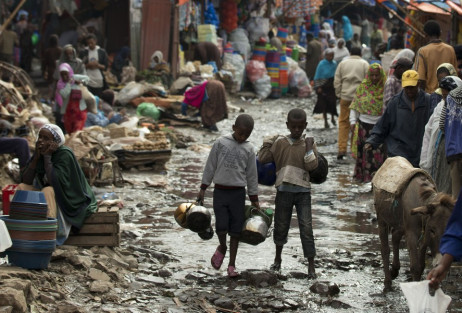The Federal Government and ActionAid Nigeria have reaffirmed their commitment to eradicating poverty by 2030 through a coordinated and inclusive approach. This pledge was made at the High-Level National Dialogue on Rethinking Poverty Reduction Strategies in Nigeria, held in Abuja. The event, themed “Prospecting for an Improved Living for Our Communities,” aims to address the rising multidimensional poverty affecting 61 percent of Nigerians.
ActionAid Country Director, Andrew Mamedu, emphasized that poverty eradication requires shared responsibility, transparency, and a focus on rewarding productivity. He called for a comprehensive review of Nigeria’s poverty reduction strategies to ensure that economic growth benefits citizens. Despite the significant increase in Nigeria’s budget from N300 billion in 1999 to N54.5 trillion in 2024, poverty levels have not decreased proportionately.
Mamedu expressed concern over the persistent poverty despite increased financial allocations to states and local governments. He cited examples of countries like China and India, which have lifted millions out of poverty through investments in infrastructure, education, health, and social protection. Mamedu also highlighted the need to prevent illicit financial flows, which result in an estimated annual loss of $18 billion.
The Minister of Budget and National Planning, Senator Atiku Bagudu, emphasized the importance of ensuring fair compensation for hardworking Nigerians and directing government support to those in need. He stated that the President Bola Tinubu’s administration is committed to building an inclusive economy driven by productivity and innovation. The Renewed Hope Development Plan aims to eliminate poverty entirely by 2030.
Bagudu noted that ongoing reforms are yielding positive outcomes, including rising revenues and renewed investor confidence. He urged Nigerians to be patient and supportive, as the benefits of these reforms will become more visible as the economy strengthens. ActionAid has reaffirmed its commitment to supporting and holding the government accountable in the fight against poverty, with a 10-year strategy to lift five million Nigerians out of poverty.
The dialogue highlights the need for a collaborative effort to address poverty in Nigeria. With the government’s commitment to eradicating poverty and the support of organizations like ActionAid, there is a renewed sense of hope for a more prosperous future. The success of these efforts will depend on the ability of stakeholders to work together and ensure that resources are used efficiently to drive development.
